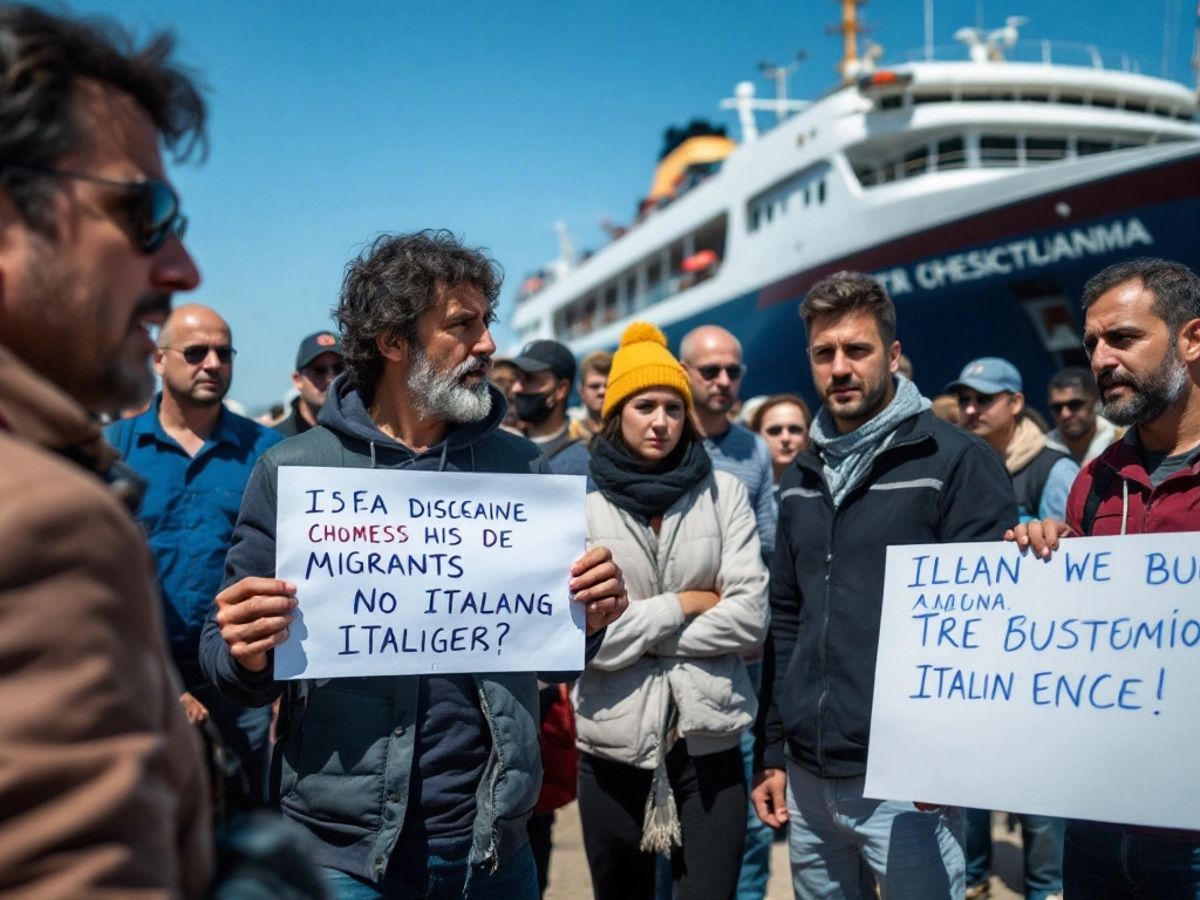A group of Albanian activists gathered at the port of Shengjin on Wednesday to protest the arrival of the first group of migrants transported from Italy. This event marks the beginning of a controversial agreement between Italy and Albania regarding the processing of asylum seekers, which has sparked significant debate over human rights and democratic processes.
Key Takeaways
- Activists protested the arrival of 16 male migrants from an Italian ship.
- The protest highlighted concerns over the undemocratic nature of the Italy-Albania migrant deal.
- The agreement allows Italy to process thousands of asylum seekers in Albania.
- Only adult men will be housed in the centers, while vulnerable groups will be accommodated in Italy.
Background Of The Agreement
Last week, Italy opened two return hub centers in Albania as part of a five-year deal signed by Italian Prime Minister Giorgia Meloni and Albanian Prime Minister Edi Rama. This agreement aims to manage the influx of migrants intercepted in international waters, with plans to shelter up to 3,000 migrants each month in Albania.
The centers are designed to process asylum requests, with the first center located in Shengjin, 66 kilometers northwest of Tirana. The second center, near the former military airport in Gjader, will accommodate migrants during their application processing.
Protest Details
The protest at Shengjin was marked by demonstrators holding a banner that read, “The European dream ends here.” Activist Edison Lika expressed strong opposition to the deal, stating that it undermines human rights and lacks democratic consultation from the citizens of both countries.
Lika emphasized that the deal is not just about the migrants’ rights but also about the democratic principles that should govern such agreements.
Migrant Demographics
The first group of migrants arriving in Albania consisted of:
- 10 individuals from Bangladesh
- 6 individuals from Egypt
These migrants were rescued at sea after departing from Libya, highlighting the ongoing humanitarian crisis in the Mediterranean region.
Controversy Surrounding The Deal
The Italy-Albania migrant deal has drawn mixed reactions. While some European countries view it as a necessary solution to the migration crisis, human rights organizations have criticized it for setting a dangerous precedent. Critics argue that outsourcing the housing of asylum seekers to a non-EU member country raises ethical concerns and undermines the rights of migrants.
Current Migration Trends
Despite the controversial nature of the agreement, the number of migrant arrivals in Italy has significantly decreased in 2024. According to the Italian Interior Ministry, approximately 54,129 migrants have arrived by sea this year, a 61% drop compared to the same period in 2023. This decline suggests that the central Mediterranean migration route may be experiencing a shift, although the humanitarian challenges remain pressing.
Conclusion
The arrival of migrants on the Italian ship has ignited a broader conversation about migration policies in Europe, human rights, and the responsibilities of nations in addressing these complex issues. As protests continue and discussions unfold, the implications of the Italy-Albania deal will likely remain a focal point in the ongoing debate over migration in Europe.






